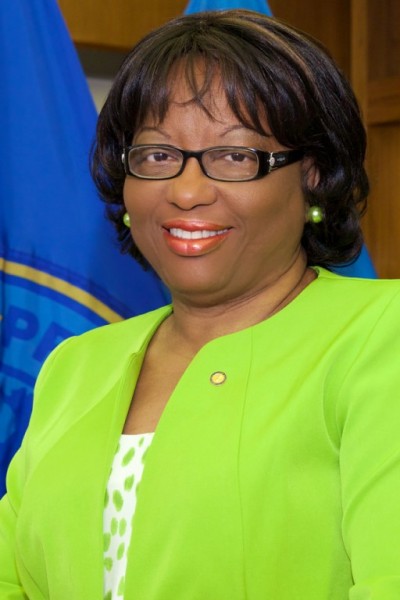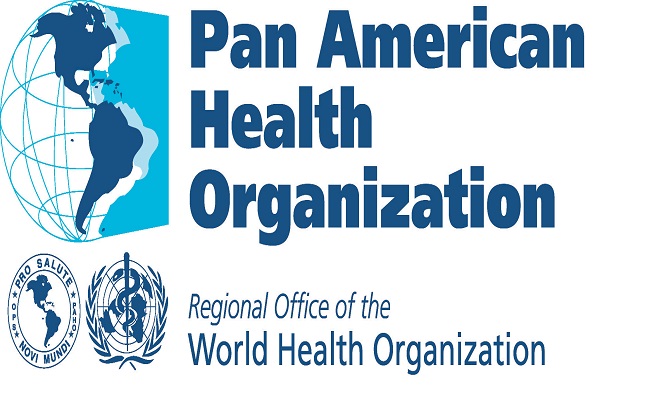Washington D.C., USA. February 10th, 2017.

The Director of the Pan American Health Organization (PAHO), Dr. Carissa F. Etienne, is visiting Belize from February 13-15 to meet with the Minister of Health Hon. Pablo Marin, Senior Ministry of Health Officials and various stakeholders.
Her visit will include courtesy calls to the Right Honourable Prime Minister of Belize Dean Barrow, Hon. Pablo Marin Minister of Health, Hon. Wilfred Elrington Minister of Foreign Affairs and Special Envoy for Women and Children Mrs. Kim Simplis Barrow.
The highlights of her visit are the signing of the Country Cooperation Strategy (CCS) 2017-2021, partaking in a dialogue on Health Financing, discussing the challenges and accomplished milestones in health within the multi-sectoral framework and the promotion of a multi-sectoral approach for the implementation of the Sustainable Development Goals (SDGs).
The CCS reflects a medium-term vision to guide PAHO/WHO’s work in and with the country in support of the country’s national health policies, and strategic plans towards the achievement of the Sustainable Development Goals (SDGs). The CCS seeks to respond to the specific priorities and needs of the country, while at the same time contributes to the health and health-related SDGs encouraging greater multi-sectoral collaboration in the country.
Dr. Etienne will be accompanied by PAHO Chief of Staff Dr. Merle Lewis and PAHO/WHO Representative in Belize Dr. Luis Roberto Escoto.
Key Recent Events
PAHO has been of support to Belize in key areas over the last five years, providing support to the country in responding to global, regional and sub-regional agreements and sharing national good practices with other countries.
Signing of the Country Cooperation Strategy (CCS) 2017-2021.
The Country Cooperation Strategy outlines the medium-term vision that will guide PAHO/WHO’s work in Belize in support of the country’s National Health Sector Strategic Plan 2014-2024. PAHO/WHO works with the MOH (as its main counterpart) and other partners to promote equity in health by responding to that country’s specific priorities and institutional resources needed to achieve its national health priorities, strategies and plans.
Adoption of Universal Health (UH) in Belize.
PAHO promotes the concepts of Universal Health and Health in All Policies (HiAP). Universal Health serves as WHO’s unifying vehicle for health integration in the context of the Sustainable Development Goals (SDGs), bringing together all facets of WHO’s work and the health dimensions of each of the SDGs. Universal Health will facilitate the reorientation of programmes and services towards the needs and barriers of excluded groups.
The strategy of Universal Health has been incorporated into the Belize Health Sector Strategic Plan 2014 – 2024. In Belize a multi-sectoral approach will need to be consolidated since determinants such as education, housing, food and employment all impact on health. Redressing inequalities in these will reduce inequalities in health; (more reference of the plan is below).
The Sustainable Development Goals (SDGs) 2015
The SDGs are applicable to all countries and are geared towards addressing the overall needs of the poor or otherwise disadvantaged groups. The SDGs cover the economic, environmental and social pillars of sustainable development with a strong focus on equity.
Belize’s approach to sustainable development is articulated in “Horizon 2030: The National Development Framework for Belize 2010-2030” which outlines four key pillars for achieving a higher quality of life for all people in Belize, now and in the future.
Recognizing that an integrated systematic approach based on the principles of sustainable development will be required, Belize also developed The “Growth and Sustainable Development Strategy 2016-2019”. This is the primary planning document that sets out the critical success factors and specific actions to be taken over the next three years (2016-2019) to achieve the longer term goals of Horizon 2030. These documents together reflect the wide range of social and economic factors that need to be addressed.


